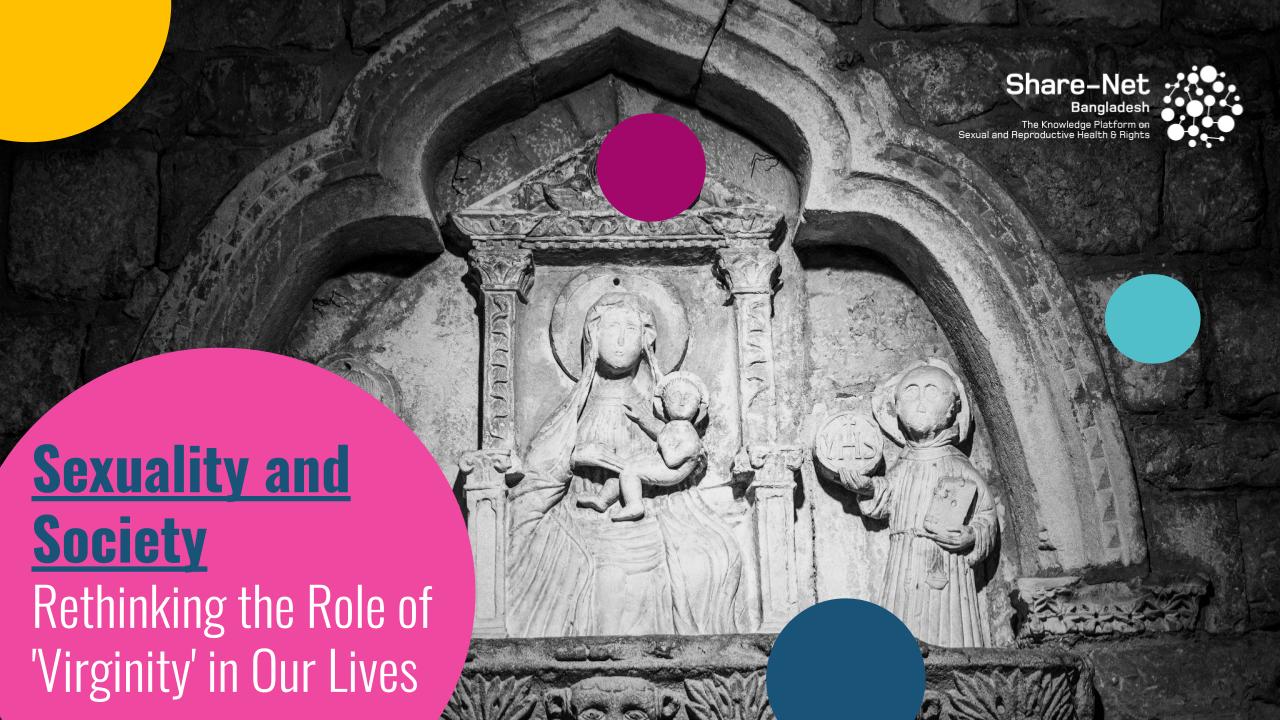Sexuality and Society: Rethinking the Role of ‘Virginity’ in Our Lives
The idea of “virginity” endures as a social construct with enduring ramifications in a world where friends, family, lovers, and even medical professionals seem to retain an oddly intrusive obsession with our sexual experiences. Examining the perspectives of gender rights activists and an experienced psychiatrist will help us negotiate the complexities of this topic and understand why society still holds onto such archaic beliefs in this day and age.
The psychiatric roots of this occurrence are clarified by eminent psychiatrist Dr. Ashique Selim, Lead Consultant of the Psychiatric Health and Wellness Clinic. He makes the argument that the widespread effect of patriarchy cannot be separated from our discussions about sex and sexuality. Gender differences are reinforced by this control over sexual behaviour, which is notably noticeable in societies around the world, from the USA to the Middle East and beyond. According to Dr. Selim, historically, this control over sexuality has sustained a social norm that still exists now of regulating female sexuality.
The first sexual encounter is typically saved for sacred occasions like marriage rituals in conservative cultures. Liberal society, on the other hand, can place a greater emphasis on celibacy or even put undue pressure on people to have their first sexual experience at a particular age or life stage. Dr. Selim emphasises that sexual behaviour patterns have remained constant over time, despite cultural influences. Pre-marital sex is not a new phenomenon, and rather than blaming the media alone, factors like delayed weddings because of education also contribute to this development.
Dr. Selim recognises that people frequently confuse real-life events with pornography, which causes confusion and performance anxiety. Removing the unjustified stigma of being ‘dirty’ or ‘sinful’ requires addressing these myths and comprehending healthy sexual conduct.
Dr. Selim, a father, and a mental health specialist, emphasises that biological instruction is still impacted by censorship in modern and progressive English-medium classrooms. Students are frequently denied access to basic reproductive health information, which perpetuates their ignorance of important facets of human anatomy and sexuality.
An innovative viewpoint is offered in the discussion by gender rights advocate and founder of Bonhishikha-Unlearn Gender Tasaffy Hossain. She emphasises that although the idea of virginity is often associated with women, its ramifications go beyond traditional gender norms. The significance of the idea is sustained by its historical connections to lineage inheritance and control over women’s bodies. This societal fixation with virginity distorts ideas about the value of and duties for women, frequently reducing their significance to their married status.
Hossain emphasises that the pressure that society places on virginity is problematic because it fosters a sense of urgency and places a premium on social standing over individual comfort, consent, and understanding. This inhibits genuine growth and enjoyment by distorting healthy connections and restricting personal exploration.
Mayabee Arannya, a fierce opponent of gender-based violence (GBV), emphasises the significance of education in addressing these problems. Through its Comprehensive Sexuality Education Programme, the nonprofit organisation Kotha, in which she is active, educates youth. Mayabee draws attention to the ways in which past experiences, opinions, and stigmas influence relational fears. Healthy relationships are stifled when the emphasis on virginity causes remorse and partner comparisons.
Arannya thinks that discussions about forbidden subjects need to emerge from the shadows and enter the mainstream. Normalising virginity-related conversations could cause a paradigm shift in how society views certain issues.
The many perspectives of these specialists are explored as we learn that the concept of “virginity” is far more complicated than it first appears to be. Our perceptions, interpersonal interactions, and even self-worth are influenced by psychological factors as well as societal conventions and personal experiences. It takes open communication, education, and a willingness to question ingrained standards to move past these conceptions and promote healthier attitudes regarding sexuality.
Source: The Daily Star



